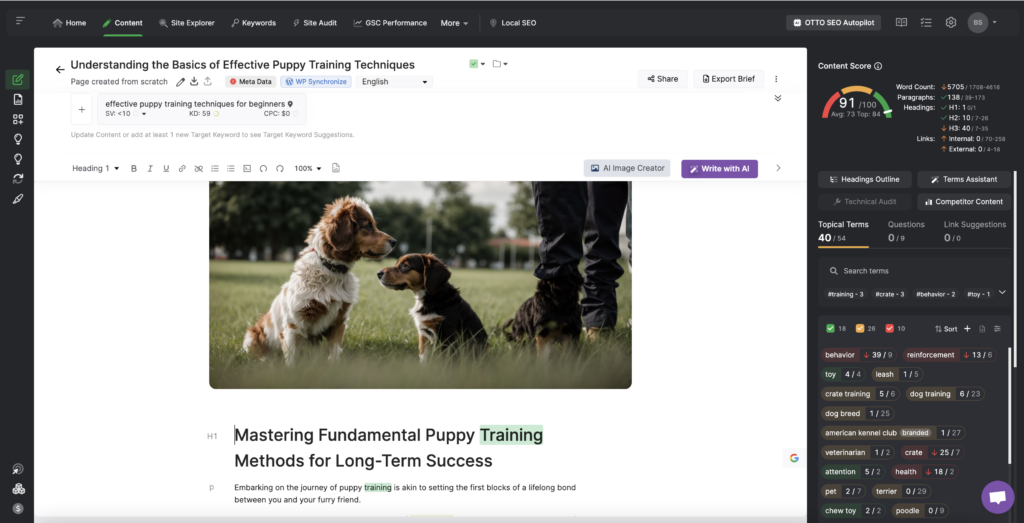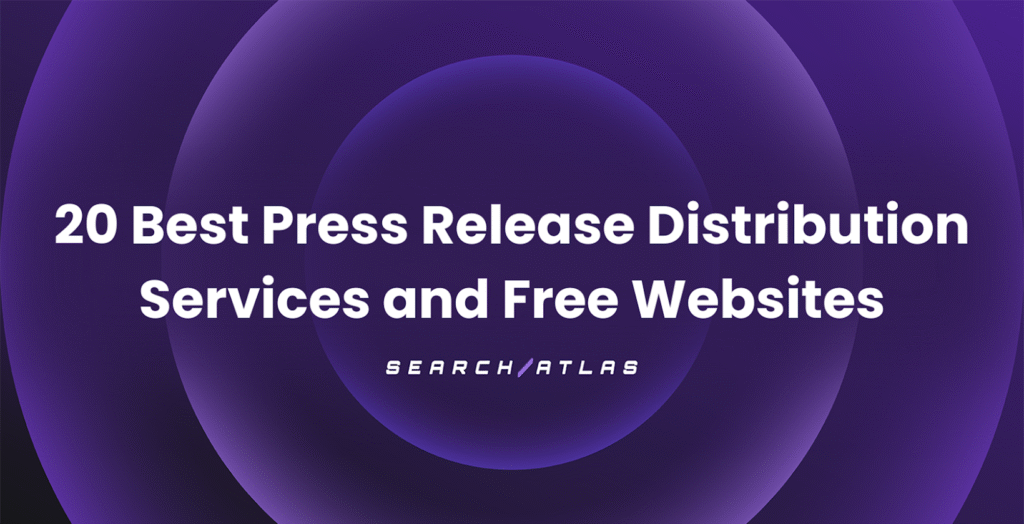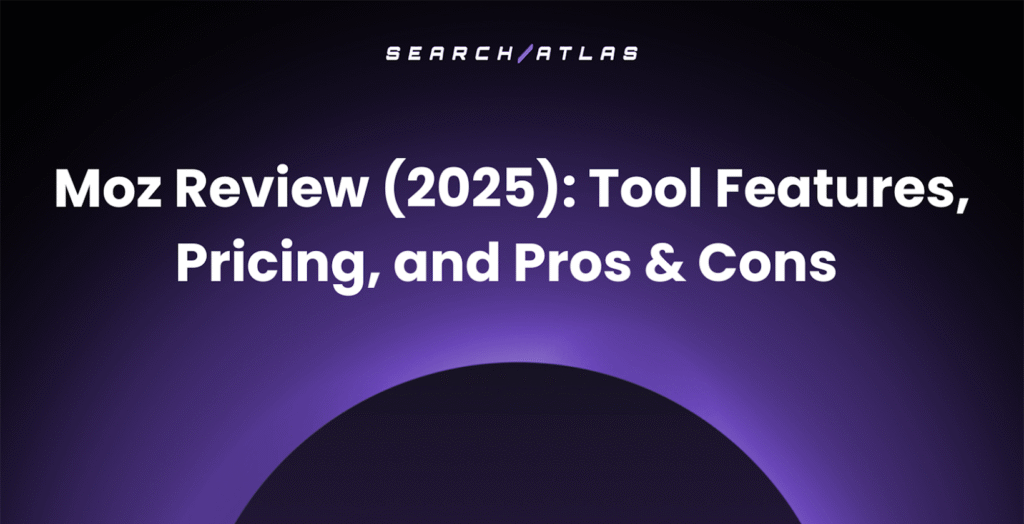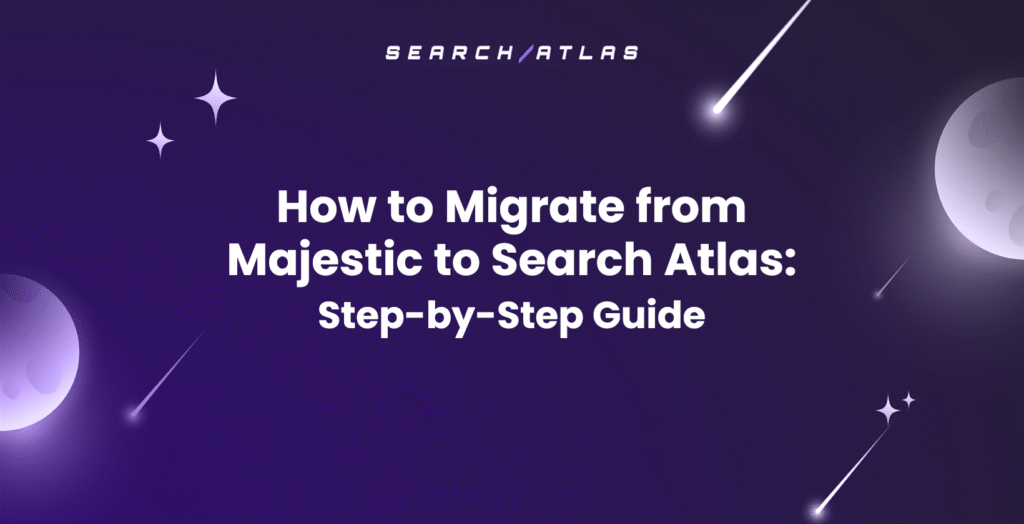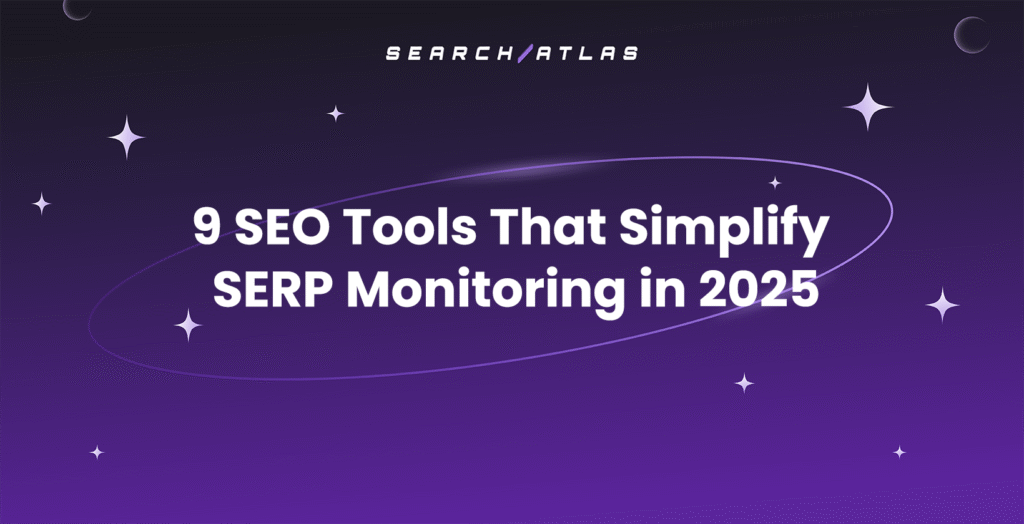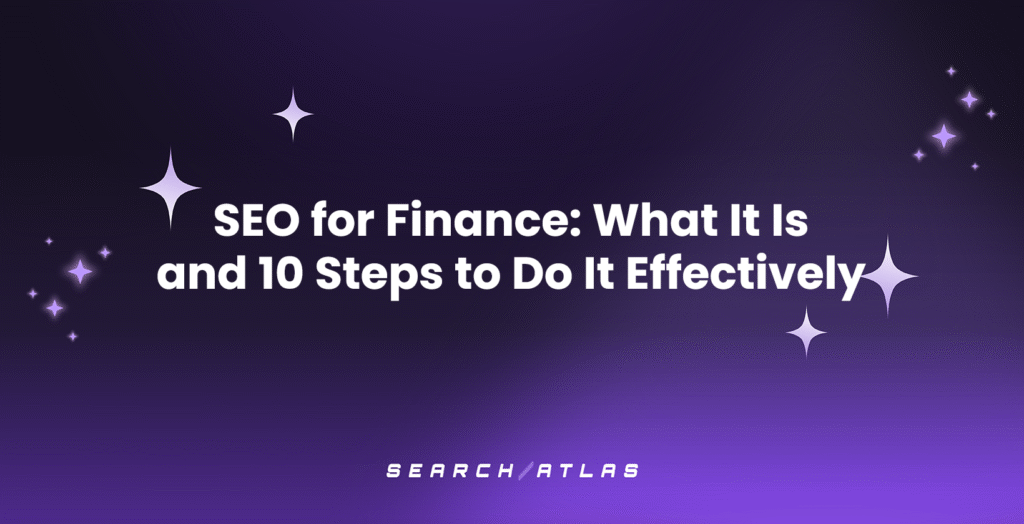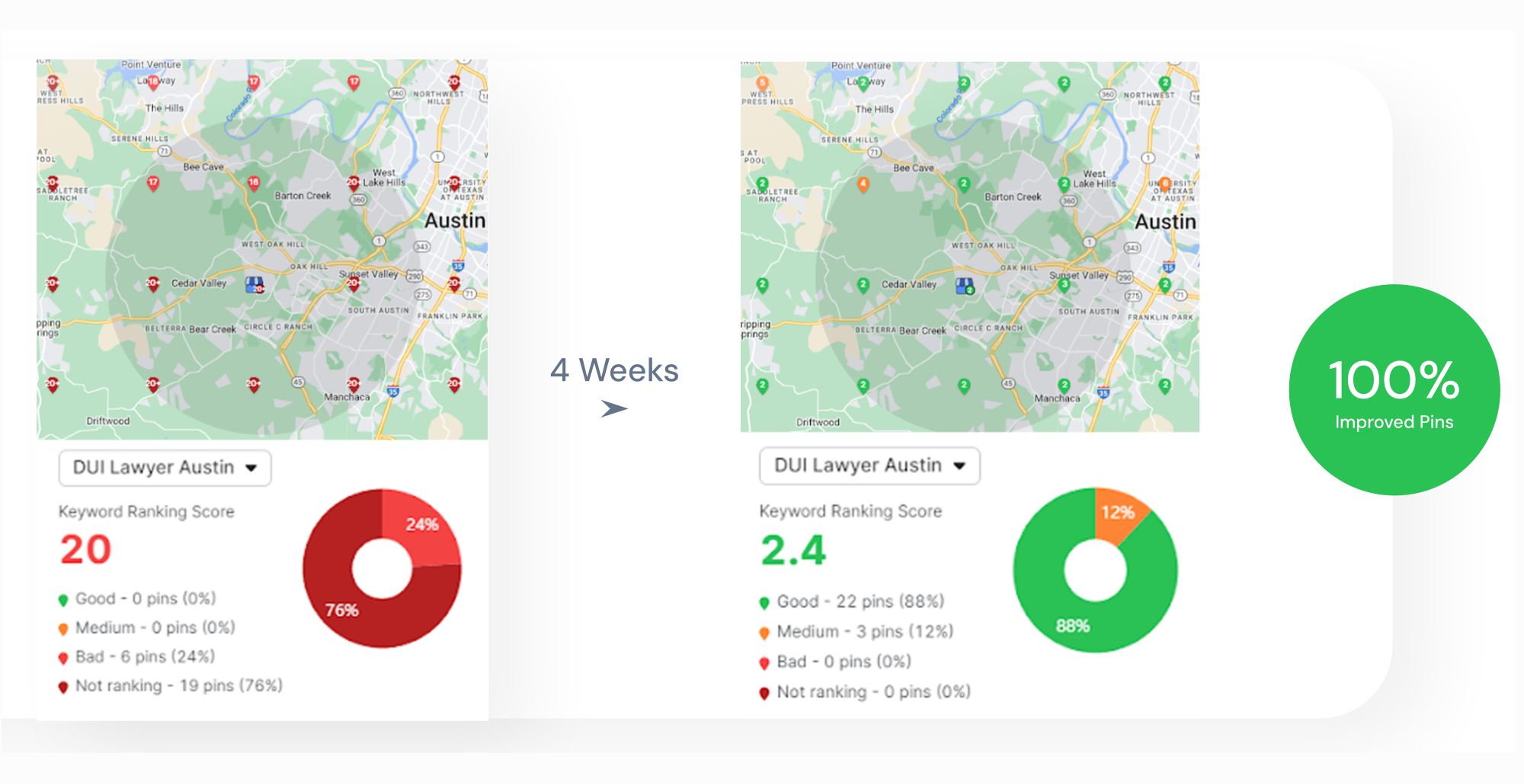Coming across the term site authority in SEO can be confusing for people who are starting to understand the industry.
There are various metrics from different companies measuring it, and you’ll come across similar-sounding names for them.
We’re here to clear things up a bit. 👓
Below, we’ll break up what site authority is, why it matters for rankings, and how to measure it easily using Search Atlas DA Checker.
What is Site Authority?
Website authority is like your website’s reputation. It’s important to understand because it helps show how high your site might appear on Google and other search engine results.
Google doesn’t officially have a “website authority” score, but it’s a key idea in SEO (making your website better for search engines). It basically tells you how strong and likely to rank well your website is.
Many Domain Authority tools have their own ways to measure this authority. So as they each use a different formula to come up with a score, it means you’ll likely get different results.

What Site Authority Metrics are There?
We’ll list the main authority metrics below. If they sound too similar to you, don’t worry, that’s pretty common. 🤷
Domain Authority (DA) by Moz
Domain Authority (DA) is a score from Moz that predicts how well your website might rank on search engines. It looks at the following factors:
- how many different sites link to yours
- the total number of backlinks
- how authoritative those linking sites are
The score ranges from 0 to 100, with higher scores meaning better potential rankings.
DA is calculated using a machine learning algorithm that compares your site’s performance to others. The more unique sites linking to you, the higher your Domain Authority score, suggesting stronger backlinks and better ranking potential.
Think of DA as a way to compare websites or track your site’s performance over time. However, it’s important to note that DA isn’t a Google ranking factor and doesn’t directly influence search results. It’s more of a helpful tool for understanding your site’s strength.
Authority Score (AS) by Semrush
Authority Score (AS) is Semrush’s way of measuring how good your website is at SEO. It looks at things like the number of sites linking to you, the quality of those links, how much organic traffic you get, and more. The score ranges from 0 to 100, with higher scores meaning your site is stronger.
AS helps you understand the overall quality of your website or specific pages. A higher score suggests that your links to other sites might be more valuable.
There are three main things AS considers:
- Link Power: The quality and number of backlinks.
- Organic Traffic: How much traffic your site gets from search engines.
- Spam Factors: Signs that your links might be manipulative or spammy.
So, AS gives you a solid picture of your site’s SEO strength and helps you see where you might need to improve. However, you shouldn’t consider it a direct predictor of ranking.
Domain Rating (DR) by Ahrefs
Domain Rating (DR) is Ahrefs’ way of measuring how strong your website’s backlinks are. It looks at how many unique sites link to you and the quality of those sites. Like other authority scores, DR ranges from 0 to 100, with higher scores meaning you have a better backlink profile.
DR compares your backlinks to others in Ahrefs’ database on a scale of 0 to 100. Think of it as a simpler version of Ahrefs Rank (AR).
DR is calculated by looking at:
- Unique Referring Domains: The number of different sites linking to you.
- Quality of Links: The strength of those linking sites.
A higher DR means more “link juice” (the power passed through links) is transferred to the sites you link to. For example, a site with a DR of 10 linking to three other sites can have a bigger impact than a site with a DR of 80 linking to a million sites.
DR is a relative measure, meaning it depends on both the number of high-DR sites linking to you and how many other sites those high-DR sites link to. If you feel these metrics are too similar, you can learn the difference in our blog about domain rating vs domain authority.
Domain Power (DP) by Search Atlas
Domain Power (DP) is a new way to measure how strong a website is, considering many different factors beyond just backlinks.
Google’s authority evaluation has changed a lot over the years, moving from just counting links to understanding user behavior, content quality, and more.
DP takes all these newer factors into account, while not completely disregarding the old. It includes:
- Organic Traffic
- Keyword Ranking
- Page Quality
- Topical Dominance
When it comes to predicting your site’s chances of ranking, Domain Power is the most accurate metric on the market.
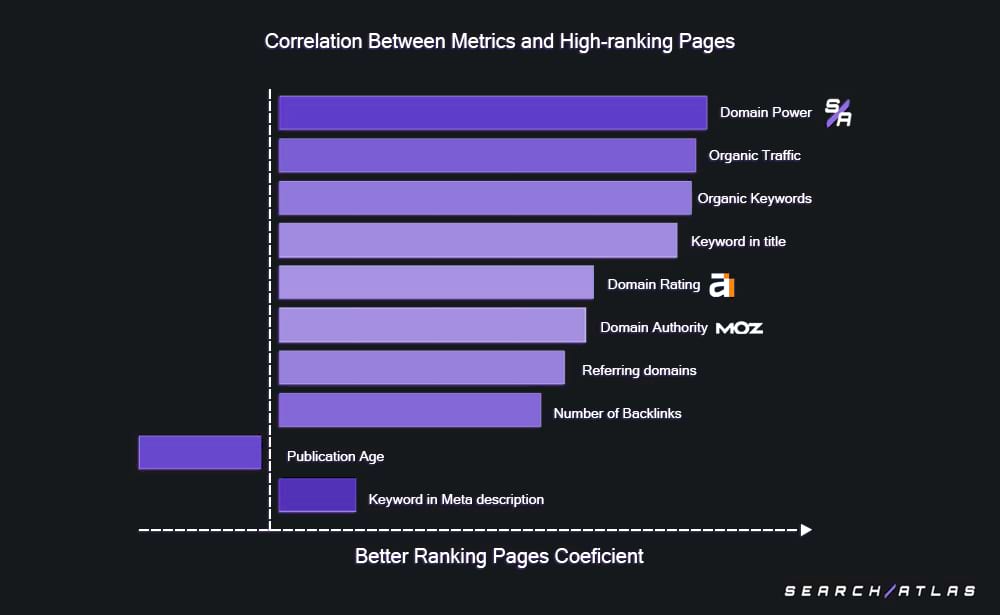
Factors That Affect Site Authority
Site authority is a combination of multiple elements that signal trust and credibility to search engines.
Google evaluates how well a site meets user needs, how often it appears in search results, and how authoritative its content is compared to competitors. Key factors include organic traffic, keyword rankings, backlinks, page quality, topical relevance, and visitor engagement.
1. Organic Traffic
Search engines like Google notice when a lot of people visit your site on their own. They’re like, “Hey, this content must be pretty good if so many folks are checking it out!”
That’s why high organic traffic is a green flag, it tells search engines your site is valuable, relevant, and trustworthy. Over time, this can help your site climb higher in search rankings, making it even easier for people to find you.
But it’s not just about impressing search engines. More traffic means more engagement. When people stick around to read, click, or interact with your content, it sends another positive signal.
This can lead to better dwell time (how long someone stays on your page), lower bounce rates (when someone leaves right away), and higher conversion rates (like signing up for a newsletter or buying something).
It’s a win-win: your audience gets what they need, and you get the results you want.

2. Keyword Rankings
Ranking well for the right keywords is a big deal when it comes to building site authority. Think of it this way: when your pages show up at the top of search results for competitive, high-traffic terms, search engines take notice.
But it’s not just about ranking for any keywords, it’s about ranking for the right ones.
This means optimizing your content to match keyword intent (what people are actually looking for) and targeting a mix of short-tail (broad, high-volume terms) and long-tail (specific, lower-volume phrases) keywords. It’s like casting a wide net while also zeroing in on niche opportunities.
Maintaining relevance across your site is key too. If your content consistently aligns with what your audience is searching for, search engines will see your site as an authority in your niche.
Of course, the work doesn’t stop once you’ve ranked. Monitoring keyword performance is crucial. Keep an eye on how your pages are doing, and be ready to adjust your strategy based on trends or shifts in search behavior.
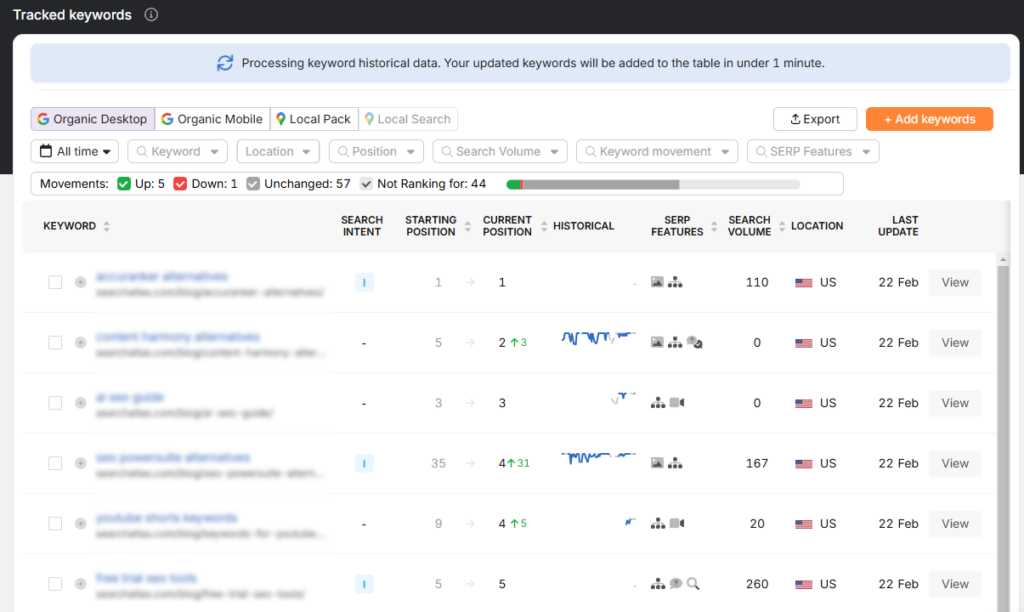
3. Backlinks
Backlinks are crucial for SEO; they act as a major signal of a website’s authority. Think of them as “votes of confidence” from other websites. When respected sites link to yours, search engines see your site as more trustworthy and credible, improving your search rankings.
However, not all backlinks are created equal. Use link building tools to find high-quality, relevant, and authoritative links, they are far more valuable than links from low-quality or spammy sites.
To get good backlinks, focus on:
- Guest Posting: Write articles for other websites in your industry.
- Digital PR: Get your website mentioned in online publications.
- Creating Great Content: Produce content that other sites naturally want to link to.
Finally, don’t forget to check your backlink profile. Remove or disavow any bad links (“toxic” links) to avoid harming your SEO. This keeps your backlink profile healthy and beneficial.
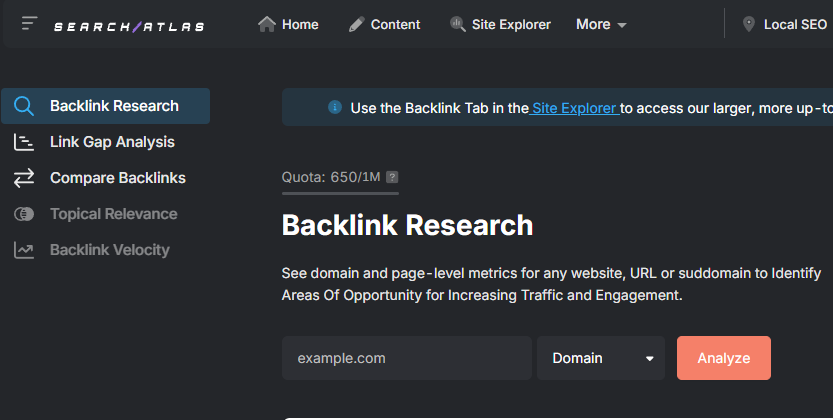
4. Page Quality
Google ranks websites higher if they are easy to use, informative, and well-organized.
This means your content should be original, not copied from other sites, well-researched to be accurate and thorough, and it should match search intent by answering the questions users are asking.
Good user experience is also vital, so ensure your site is easy to read with clear language and formatting, uses multimedia like images or videos where appropriate, is mobile-friendly so it works well on phones and tablets, and loads quickly, avoiding slow page speeds.
Google wants content that genuinely helps users. In short, regularly update your pages, remove or improve any content that is thin or unhelpful, and ensure the website’s technical aspects (technical SEO) are in order. You can use technical SEO tools to automatically fix technical issues.
Are there ways to check this accurately? Absolutely yes, we made a tool for that, and it’s called Scholar.
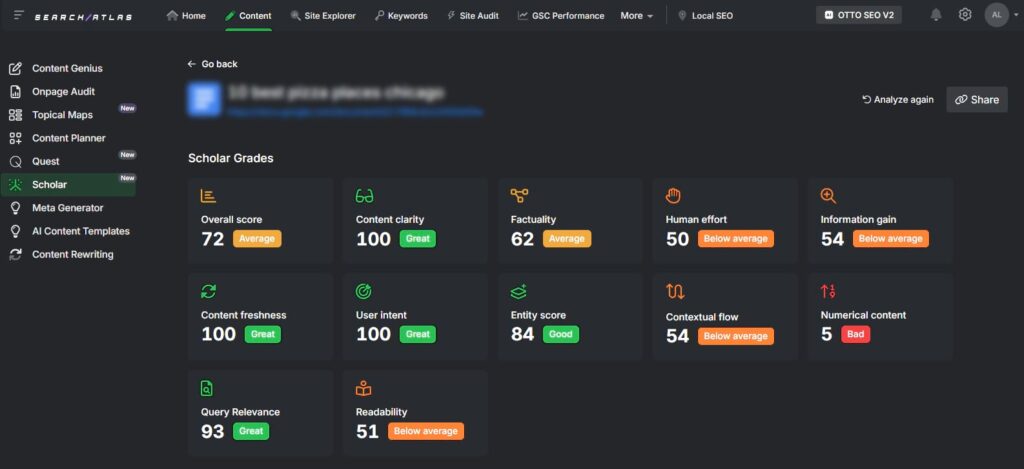
5. Topical Dominance
Want to boost your overall website authority? A key strategy is to become a recognized expert in a specific niche. Search engines, like Google, tend to favor websites that demonstrate deep knowledge and comprehensive coverage of a particular subject area.
Instead of spreading your content thinly across many unrelated topics, focus on building topical authority. This means creating a strong foundation of in-depth, “pillar” pages that cover the core aspects of your chosen niche.
To further solidify this, you can support these pillar pages with a network of related blog posts. These posts should explore specific subtopics and questions related to the main pillar content.
Last but not least, these pages and posts should be strategically interlinked. This internal linking structure helps search engines understand the relationship between your content and reinforces your expertise in the niche.
And yes, we have one of the few tools that can measure topical dominance. 😎
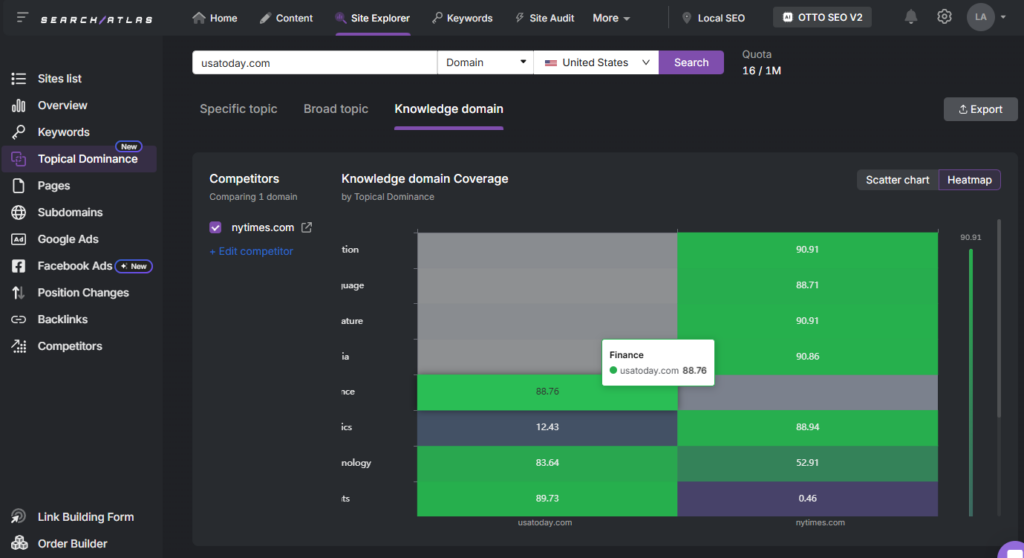
How to Check the Power of Any Website
Domain Power will give you the most comprehensive and accurate view of your site’s strength. So how do you measure it?
There are two ways.
The first is using the Search Atlas Site Explorer, which will give you detailed insights into any site.
The second is a Bulk URL Analyzer, excellent for digital marketing agencies. And yes, it can analyze up to 5,000 URLs in one go.
Accurately Assess and Improve Your Site Authority with Search Atlas
Site authority is super important for SEO because it’s how Google judges if your website is good enough to show up high in search results. The better your authority, the more likely people are to find you online.
We at Search Atlas respect all the ways people have measured site authority over the years. They’ve all helped us get to where we are today. But, we honestly believe our “Domain Power” score gives you the clearest picture of how well your site can rank.
And the cool part? Search Atlas’s AI tools let you find out your Domain Power fast, so you can start making improvements right away. No waiting around.
Want to see how powerful your website really is? Take Search Atlas for a spin with a 7-day FREE trial and find out!


